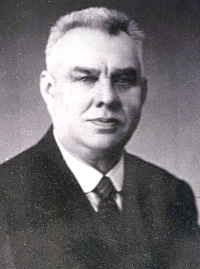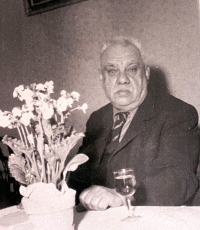Rudý Letov instead of Communist Party ID card

Download image
František Švarc was born on 8 January 1953. Since childhood, he lived in Vinoř, a village near Prague that later became part of the capital. Both his parents were members of the Communist Party of Czechoslovakia, his mother worked for the Ministry of Agriculture, and his father worked as an aviation engineer in the Avia company. František Švarc experienced the first minor issue concerning the regime in childhood when the village by fraud nationalised part of his grandparents’ property. The invasion on 21 August 1968 meant a big shift in his mindset. He remembers celebrations of the victory of Czech hockey representation over the Soviet Union representation in March 1969 which were an unforgettable experience for him. Normalisation fully started later. His mother was fired from work and expelled from the Communist Party because she did not pass normalisation screenings. Besides other things, it later meant that František could not expect to study at university after his secondary school leaving exam. He repeatedly declined to join the Communist Party at work. He finally ended up working as a hardener in Rudý Letov. He started to learn German at that time. Thanks to it, he became an interpreter and translator in the second half of the 1980s. After 1989, he started a business in the field. That is why he could take care of his father who as a convinced communist finally admitted that communism came for him thanks to capitalism because everything was free for him in his son´s house. František Švarc became an active politician only in 2006. He became mayor of the Prague-Vinoř district and a Prague councillor for the Civic Democratic Party. To this day (2021) he is a member of the Vinoř municipal board, but above all, as he says, he enjoys a happy retirement.




